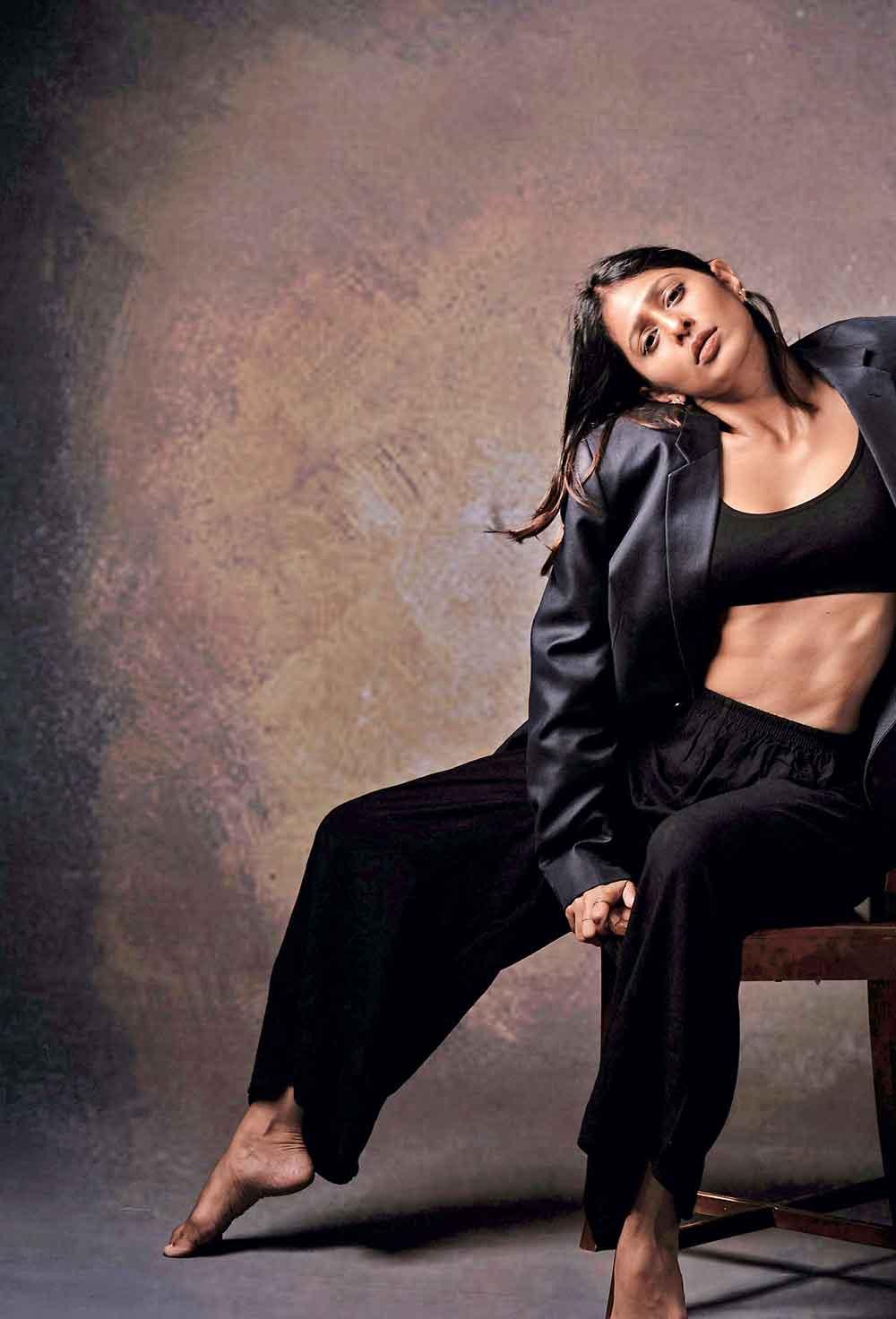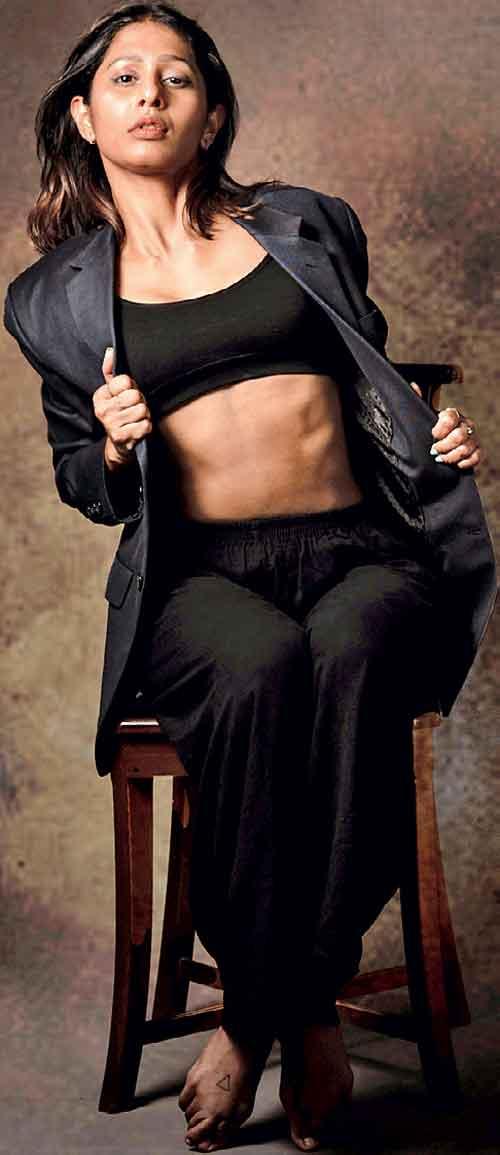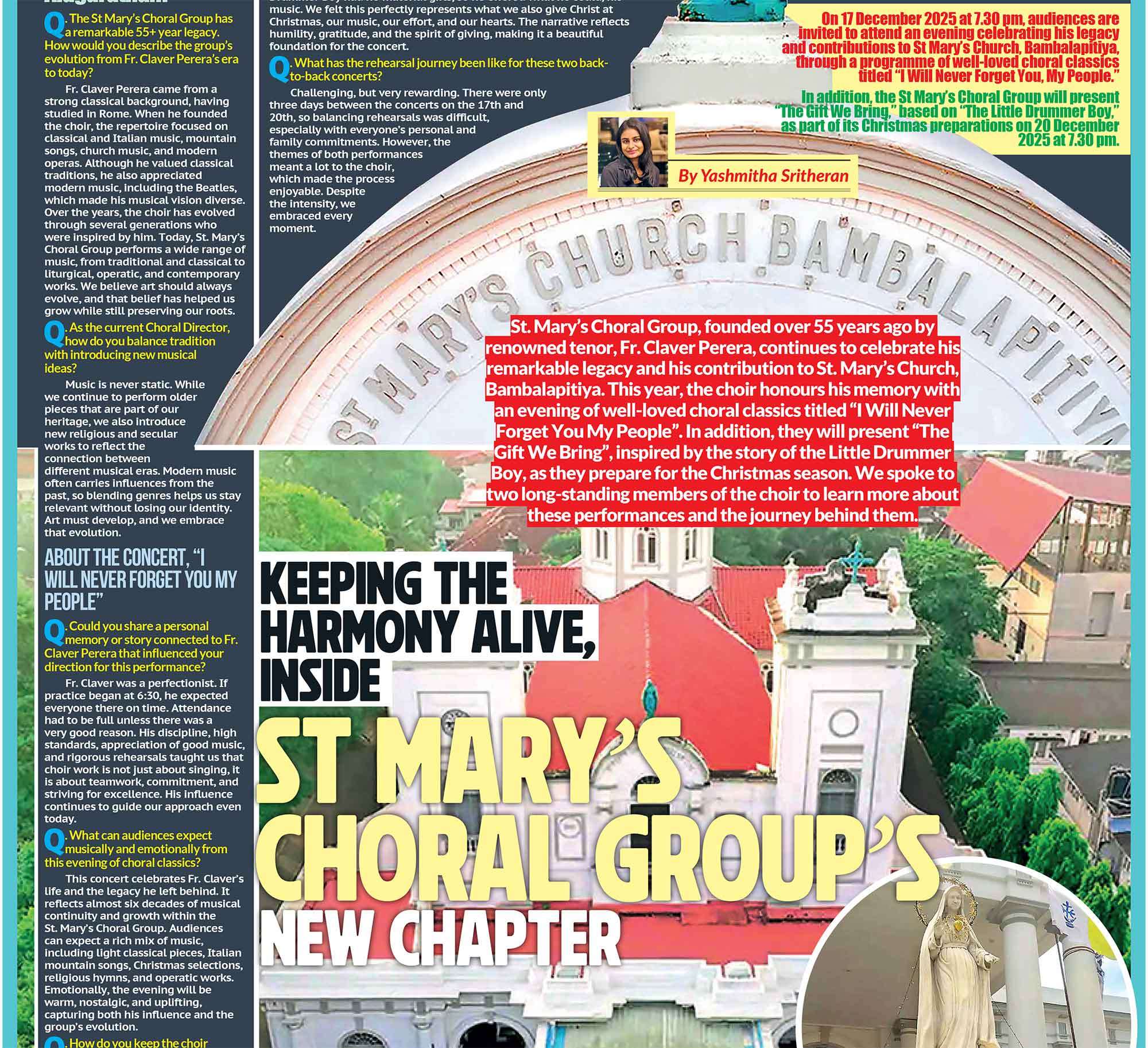
When Sri Lankan dance movement therapist, artist, and performer Rangi Fernando steps into a studio, something profound begins to unfold. It’s not about choreography, performance, or precision. It’s about returning home; to the body, to breath, to truth. She has been trained in Kandyan dancing from the age of six. This November, Rangi returns to London for her third Reclaiming Movement, Reclaiming Self masterclass, an immersive experience that invites participants to move, breathe, and rediscover the wisdom their bodies have always held. Her sessions are less about technique and more about presence, an exploration of what it means to be embodied in a world that constantly pulls us away from ourselves.
Movement as Memory, Movement as Language
Rangi holds a Master of Arts in Dance Movement Therapy and completed her clinical internship at the Royal Bolton Hospital (NHS) in the UK, where she worked with individuals navigating acute mental health challenges, Parkinson’s, and dementia. These clinical encounters deepened her understanding of movement not just as art, but as communication, memory, and identity, particularly in moments when words fall short. “In those hospital rooms,” she recalls, “I saw how the smallest gestures, a hand tremor, a shift in posture, carried more truth than words ever could. Movement was the bridge back to connection.” Her time in the NHS provided the foundation for what would become her life’s work: using movement as a pathway to healing, empowerment, and reconnection, especially for women who have been silenced or conditioned to disconnect from their physical and emotional selves.
The First to Pioneer Dance Movement Therapy in Sri Lanka
Rangi is widely recognized as the first to introduce Dance Movement Therapy (DMT) to Sri Lanka. Her pioneering work began in small community circles, gatherings of women from different social and cultural backgrounds who came together to explore movement as self-expression. What she discovered was both powerful and painful: beneath layers of resilience lay generations of emotional silence, social conditioning, and cultural restraint. Many women had learned to make themselves small, in their gestures, in their voices, even in their breath. Through her workshops, Rangi began to witness transformation. Women who initially stood with crossed arms and hesitant eyes began to move freely, cry, laugh, and remember who they were before the world told them to shrink. “It wasn’t about dancing beautifully,” she says. “It was about allowing the body to speak what had been unspoken for too long.” These early experiences planted the seed for her to leave Sri Lanka and pursue further study in Germany, to deepen her theoretical grounding and bring back knowledge that could serve her community. Her ongoing research asks a profound question: “When integrated into Sri Lanka’s cultural context, how can Dance Movement Therapy empower women?”
Cultural Sensitivity and Emotional Truth
Rangi is quick to emphasize that there is no universal template for healing. “One size does not fit all,” she insists. “Especially in cultures where emotional restraint has been inherited over centuries.” In Sri Lanka, as in many postcolonial societies, the language of therapy can feel foreign or inaccessible. Western frameworks often overlook cultural nuance, and the term “therapy” itself can carry stigma or alienation. Rangi’s approach, therefore, is deeply culturally responsive. She doesn’t impose a structure; she listens to the rhythm of each group. Movement becomes a gentle and culturally aligned pathway to emotional processing and community support, a way to feel without having to explain, to express without fear of exposure, and to be held in collective safety rather than hierarchy. She often speaks about the lingering effects of colonization, not only on land and language but on how people relate to their own bodies. “Western frameworks often claim ownership of healing,” she reflects. “But our ancestors had embodied ways of processing grief, joy, and trauma, through ritual, through rhythm, through dance. I’m not bringing therapy into the culture; I’m reconnecting it to something it already knew.”
An Integration of Disciplines
Rangi’s work draws from an intricate tapestry of movement practices. Beyond her formal training in Dance Movement Therapy, she is a certified yoga teacher, has completed foundation training in Laban Movement Analysis and Bartenieff Fundamentals, and has undertaken multiple modules in Somatic Movement and Body-Mind Centering. She weaves these disciplines fluidly, using them to support breath, alignment, efficiency, emotional presence, and expressive capacity. Each class is a journey, beginning in stillness, softening through awareness, and unfolding into movement that feels both spontaneous and deeply intentional. “People often think movement is something we must learn,” she says. “But it’s something we return to. The body already knows how to move, we’ve just forgotten how to listen.”

The Artist and the Healer
Before she became known as a therapist, Rangi was, and remains, a dancer and choreographer. Her early work in performance was rooted in exploring identity and memory through the body.
During her studies, she temporarily stepped away from the stage to focus on therapeutic practice, but she is now rediscovering her creative voice, preparing for a solo performance set to premiere in 2026. Her masterclasses often contain fragments of her choreography, not as routines to be learned but as invitations. Participants are encouraged to find their own resonance with the movement, to ask not “What does this look like?” but “What does this feel like?” Her teaching dissolves the boundary between art and healing. “When movement comes from truth,” she says, “it is always beautiful.”
Spotlight: A Stage for Women’s Stories
In 2018, Rangi founded Spotlight, a performance platform in Sri Lanka that merges art and empowerment. After a month-long “Empowerment Through Movement” program, 50 women take the stage alongside Rangi, women of different ages, professions, and experiences. The performances are raw, authentic, and deeply moving.
Spotlight does not prioritize technical perfection. Instead, it celebrates lived experience, the tremor in a hand, the courage of standing before an audience, the collective pulse of women reclaiming their narratives through their bodies. For many participants, it is the first time they have ever been seen and witnessed without judgment. “It’s not about performing for the gaze,” Rangi explains. “It’s about being seen in one’s truth.” Rangi hopes to bring Spotlight to London in 2027, envisioning a cross-cultural platform that continues to honour embodied storytelling and shared witnessing.
The London Masterclass: Returning to Presence
Her upcoming London masterclass focuses on five central themes:
- Authentic movement expression
- Breath and body awareness
- Movement capacity, agility, and efficiency
- Emotional and physical reconnection
- Feeling at home in one’s own skin
“It’s not performance, it’s presence,” she emphasizes. “This work is not about becoming someone new. It’s about remembering who you already are.” Participants often describe her sessions as transformative, not because of what they learn, but because of what they unlearn: the need to perform, to perfect, to please. What remains is the quiet clarity of embodiment, a return to simplicity, to truth, to self.
A Global Practice Rooted in Home
Though based between Sri Lanka and Europe, Rangi continues to lead international retreats that bring together participants from diverse backgrounds. Her recent retreats in Sri Lanka were attended by both local and international women seeking deeper connection to their bodies, culture, and creative flow. Her next retreat is set for Cyprus in May 2026, where she plans to explore themes of movement, identity, and remembrance, a continuation of her inquiry into how culture and embodiment intersect across borders. Each gathering, whether in a quiet Sri Lankan village or a London dance studio, reflects her enduring belief: “Movement is not something we learn. It is something we return to.”
Reclaiming Movement, Reclaiming Self
At its heart, Rangi’s work is an act of reclamation, of the body as a home, of movement as memory, and of self as story. In a world that often demands disconnection in the name of survival, her masterclass offers a rare kind of sanctuary: a space where the body is not something to fix or control, but something to listen to, honour, and trust. When asked what she hopes participants take away, Rangi smiles softly. “That they remember themselves,” she says. “That they remember they are whole, not in theory, but in their bones.” In that remembering lies the essence of her work: movement not as escape, but as return.
Rangi Fernando photographed by: Sanjeewa Weerasinghe











